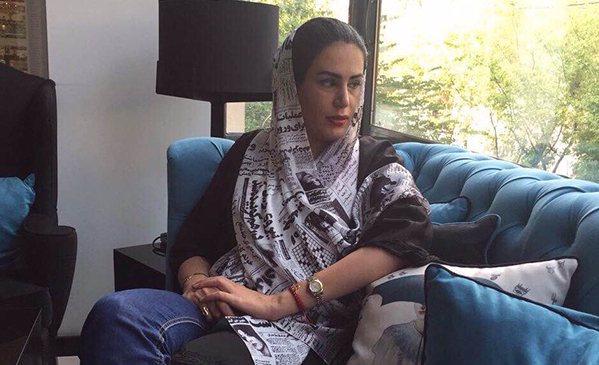Features

Last month, Iran’s Revolutionary Court sentenced the 33-year-old Iranian journalist Solmaz Ikdar to three years in prison. In an exclusive interview with Journalism Is Not A Crime, Ikdar explains why she had no other choice than to leave Iran.
“I was wondering what was going to happen to me after I had served my sentence,” Ikdar says. “They have banned me from continuing my studies – and this ban is still in force, even after Rouhani was elected as president. I was asking myself what kind of a life I would have if I could not work, if I couldn’t go to university and couldn’t leave my country legally. That’s why I left Iran.”
It’s not the first time Ikdar was sentenced to prison for her work as a journalist. She was first arrested in 2008 on the charge of “spreading propaganda against the regime”. The court expelled her from university and sentenced her to six months in jail. Although the verdict was issued while Ikdar was in Malaysia, she decided to return to Iran to serve her sentence.
“I went to Malaysia in 2010, but I didn’t stay,” Ikdar explains. “I felt very guilty towards the other journalists in Iran. We had started something together, and we were after the same thing, but some were in prison; they were paying the price. It was unbearable for me to be on the outside while they were in jail.”
Like many other Iranians, Ikdar was hopeful when the moderate President Hassan Rouhani was elected a few years later. She was hopeful that things would change, and that she would be allowed to return to university. But she wasn’t. Instead, hardliners intensified their campaign against independent media by arresting more journalists who were not supportive of the regime.
Consequently, in June 2015, Ikdar decided to go abroad to continue her studies. But at the airport, authorities confiscated her passport, denied her the right to travel abroad, and arrested her.
Two days later, Ikdar was released on a bail of almost $65,000. Her trial, which was postponed due to the absence of the prosecutor’s representative, took place on October 20, 2015 and the verdict was issued on November 10.
Ikdar used to work for reformist newspapers, but the evidence presented against her in court was comments she had written on her personal Facebook page. Her trial was presided over by Judge Mohammad Moghiseh who has a long record of violating human rights of the defendants – and is on the European Union’s human rights sanctions list. On charges of “insulting the Supreme Leader” and “spreading propaganda against the regime”, he sentenced Ikdar to three years in prison.
Repression Continues After Ahmadinejad
But Ikdar decided to leave the country, illegally. In explaining her decision to escape Iran, Ikdar recounts a conversation she once had with Masoud Bastani, a reformist journalist who is currently serving a six-year prison sentence in Rajaei Shahr Prison:
“After the presidential election in 2013, Bastani was given a furlough from prison. He told me, ‘Being in prison now is very hard to accept. We criticized Ahmadinejad’s international policies, and said we didn’t want him in power. Now his government is no longer in power, but they continue to jail us’,” Ikdar says and continues:
“After the 2013 election we set aside many of our demands because we were hoping that the situation in Iran would improve. So this time, going to prison was very difficult for me.”
Between 2009 and 2011 many Iranian journalists were put behind bars, but at that time it was easier for them to return to their jobs after serving their sentence.
“Their jobs were safe. Managers and other journalists worked together, so those in prison were not replaced. Journalists were confident that they could return to their jobs after prison,” she says.
But the situation today is different, Ikdar explains. Due to an increased pressure on independent media, most journalists who are released from prison, although they have served their sentence and are legally allowed to work, can’t find a job in media.
“The high pressure on media means that managers can’t give the journalists a job, even though they want to,” she says. “At first the journalists were told to publish their reports under another name. Then they were told to work from home, and eventually they lost their jobs. But this isn’t the only issue. Many of the journalists who have served their sentence cannot get a passport, even though they have not been prohibited from leaving the country.”
With the prospect of a life without job, education and the freedom to travel, Ikdar felt she had no other choice than to leave the country.
“We compromised and we set aside many of our demands. Why should I then go to prison and suffer?” Ikdar asks.
Today, Ikdar regrets the Facebook posts that caused her to leave Iran.
“Whatever we do in life has good and bad consequences,” she says. “Leaving Iran without being able to return weighs heavily on me. I have deep roots in Iran. Pulling up these roots violently and leaving is without doubt very painful.”
Related articles: